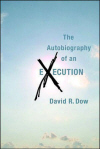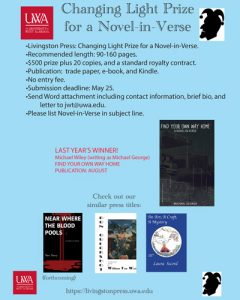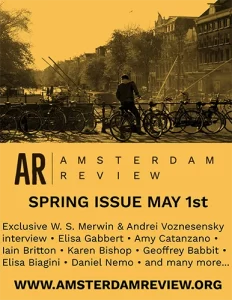The Autobiography of an Execution
In the past decade, death penalty defense lawyers have taken to the practice of outlining the life history of their clients to juries, including the circumstances that led to the murder for which they face death. The goal is the jury’s sympathy, the hope that they might spare them from death. I always wondered about whether these same juries end up with sympathy for the lawyers themselves. A life of death penalty defense, with so many sleepless nights and last-minute scares, often seems like a sadomasochistic, or at the very least, all-consuming career choice.
In the past decade, death penalty defense lawyers have taken to the practice of outlining the life history of their clients to juries, including the circumstances that led to the murder for which they face death. The goal is the jury’s sympathy, the hope that they might spare them from death. I always wondered about whether these same juries end up with sympathy for the lawyers themselves. A life of death penalty defense, with so many sleepless nights and last-minute scares, often seems like a sadomasochistic, or at the very least, all-consuming career choice.
At the same time, the complexity of the law can make it easy to give up trying to understand what it must be like to get involved. The process of appeals, as it unsteadily lopes through the courts, sometimes over decades, is so labyrinthine that all of the emotional aspects, the fact that it is fundamentally about life and death, can get lost in the language of “evidentiary limits,” “procedural requisites,” and a whole mess of Latin.
David Dow, in The Autobiography of an Execution, manages to balance these poles of complexity and emotion, legality and sympathy, by way of confession. Unlike Dow’s earlier written work on the death penalty (Executed on a Technicality), this work is an impression-heavy, emotionally sophisticated narrative of the experience of a death penalty defense lawyer as his client nears execution. In Dow’s reflective prose, the story of the legal battles is woven in with disarmingly intimate accounts of his life with his wife and son, and his guilt over spending so little time with him.
Random events from his relatively typical middle class experience are interspersed between the fever pitched moments of intensity that pervade the legal process around the death penalty, execution dates, hearings, and last minute stays. With almost no warning, the mundane jog in the early morning, the glass of whiskey, the briefest interaction with his son, become powerfully invested moments because they are placed so close to the “dreadful anticipation” surrounding each of his clients. Dow expertly guides us through his multiple worlds: a stable, though occasionally tense domestic life, a frantic law office, the crushing environment of Death Row, without cheap juxtapositions. We feel the transitions, are compelled by the contradictions, and walk with Dow as he retreats to his home office at 3 a.m. to write down ideas for cases.
By trading in chapters for randomly lengthened anecdotes separated by dividers, Dow is able to capture his own loose vision for an autobiography that is only partially about himself. The clients sometimes bleed together and the legal threads often become obscure, but the result is not an ocean of information so much as a tight web of impressions. One can choose whether or not to trace out its complexities, while still unable to help being enveloped by Dow’s synthesizing prose, terse as Hemingway, which takes emotionally harrowing turns with powerfully little notice. The most effective moments are when he is communicating with his young son:
On Thursday morning, as we were finishing our pancakes, Lincoln said, What are we going to do when you get home today, Dada? It was the day of Green’s execution. I told him that he was going to have to hang out with Mama today […] He said, Are you trying to help some person? I told him that someone else was trying to help the man. I was just going to visit him. He said, Why can’t you help him too?
The innocence of Lincoln’s understanding is a powerful device, and Dow utilizes it to reflect on his role in the complex legal processes with a poignant simplicity. Along with a lack of documentable facts, voices like Lincoln’s make Dow’s story a dreamlike walk through experiences, and indeed he mentions the stories of various dreams with nearly as much detail as the real world. Following with rules of legal ethics (and an appendix by another scholar explains these rules), he cannot tell us exactly which facts go with which cases, and his archetypal death row defendants are such abstracted in a fashion that allows him to describe his life with collage-like impressionism. Trips to the supermarket, long drives to Death Row, his son’s baseball games, and lying in bed chatting with his wife all form a kind of landscape in his mind that may be imprecise, but is far more beautiful for it.
As a result of these limitations, Dow’s work reflects much more accurately the way people actually remember things. Events are chronological only when the chronology itself has meaning, emotions and experiences are more powerful than facts, the interactions with judges and other lawyers more powerful than the facts of the cases. We are left not with a step-by-step account of Dow’s life and work, but rather with the fragments of horror left by it.





